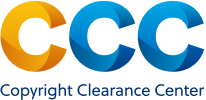Trust in Scholarly Publishing



The Scholarly Communication Handbook has been published by Facet Publishing. This guide explores how to evaluate the best place to publish academic research today. Considering publication types, open access and licensing options, as well as appropriate uses of research metrics and the benefits and setbacks of peer review. Providing a comprehensive overview of the knowledge required for understanding and navigating the scholarly communication landscape.
This analysis report follows up on the release of a scoping paper in 2022, an overview of what the authors saw as being a vibrant ecosystem of so-called alternative open access publishing platforms. In September 2023, Knowledge Exchange published a report which shares the first results from a survey. The report gives valuable and interesting insight into the world of alternative publishing platforms. This study, the dataset that underpins it and the interactive visualisation tool reveal some interesting key findings.
Software and data citation are emerging best practices in scholarly communication. This article provides structured guidance to the academic publishing community on how to implement software and data citation in publishing workflows. These best practices support the verifiability and reproducibility of academic and scientific results, sharing and reuse of valuable data and software tools, and attribution to the creators of the software and data.

On October 30, the COAR Task Force on Supporting Multilingualism and non-English Content in Repositories published 15 recommended practices for repositories to support multilingual and non-English content in repositories. The recommendations identify good practices for repository managers and repository software developers, and focus on the topics of metadata, multilingual keywords, user interfaces, formats, and licences that will improve the visibility, discovery and reuse of repository content in a variety of languages.
Sune Dueholm Müller, professor at the University of Oslo and editor-in-chief, reports his experience, also described in this article, of the hijacking of the Scandinavian Journal of Information Systems.
Hijacked journals are scam websites that impersonate legitimate journals and attempt to take over their brand. A list including hundreds of these fake sites can be found at the Retraction Watch Hijacked Journal Checker. By stealing the brand, web domain, or the serial number used to identify a publication, cybercriminals try to lure researchers into paying for publications.
Read also the methods used to locate or confirm hijacked statuses of journals.
The Recommended Practice is the product of a working group made up of cross-industry stakeholders formed in spring 2022. The Alfred P. Sloan Foundation generously provided funding for this Working Group as well as for research at the University of Illinois’ Reducing the Inadvertent Spread of Retracted Science (RISRS) project, which has informed Working Group deliberations and decisions.
The draft Recommended Practice, with commenting capability, is available at https://niso.org/standards-committees/crec from October 18 to December 2. NISO also hosted a recent public webinar discussing the work and the public comment period and has made its recording available.

In late 2022, Copyright Clearance Center (CCC) and Media Growth Strategies undertook a thorough examination of metadata management across the research lifecycle. CCC is sharing this analysis with the scholarly communications community to spark dialogue and to drive action. This living infographic depicts the significant impact that a fragmented metadata supply chain has today on researchers, institutions, funders, and publishers. Stakeholders recognize that new strategies, inclusive policies, and a robust network of interoperable data and systems are essential for making critical infrastructure improvements, and much progress is underway.
Think.Check.Submit, an initiative to which ISSN International Centre contributes, has just published a video for researchers wishing to identify journals for their manuscripts. https://www.youtube.com/watch?v=bdM6fxP2Zk
This video is a guide for all librarians who are supporting researchers in finding the right home for their work and avoiding predatory publishers.

Nandita Quaderi, Editor-in-Chief and Vice President of the Web of Science, Clarivate, explains the important changes to the 2023 Journal Citation Reports release.
For nearly half a century, the Journal Citation Reports (JCR) has been a beacon of credibility, providing the global academic community with invaluable insights into the world’s leading journals. The 2023 release of the Journal Citation Reports embraces important changes that usher in a new era of comprehensive coverage and the evolution of the Journal Impact Factor (JIF) to become an indicator of journal trustworthiness as well as impact.